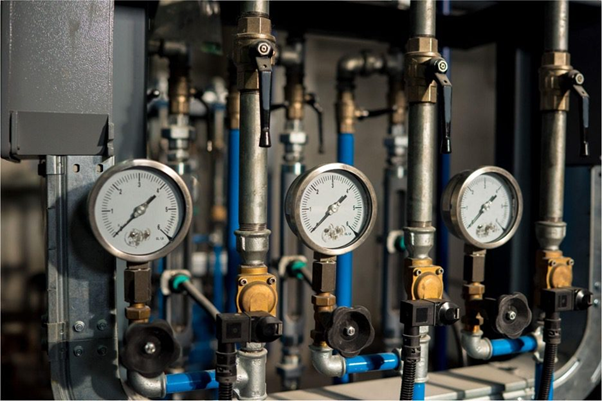Pressure gauges are essential tools in various industries, helping measure the force of gas or liquid within a system. Understanding the different types of pressure gauges is crucial to selecting the right one for specific applications, ensuring accuracy and safety. This article will explore the various types of pressure gauges, their applications, and key factors to consider when choosing the ideal one for your needs.
Pressure Gauges: The Essential Tool for Measuring Pressure
Pressure gauges are instruments used to measure the pressure of liquids or gases within a system. These devices provide critical information about the operating conditions of pipes, tanks, and other components, allowing operators to maintain optimal functionality and ensure safety. Depending on the application, there are several types of pressure gauges, each designed to handle specific pressure ranges and environments.
1. Bourdon Tube Pressure Gauges
Bourdon tube pressure gauges are among the most common types used in industrial applications. These gauges use a curved metal tube that straightens when pressure is applied. As pressure increases, the tube becomes more straight, moving a pointer on a calibrated dial to indicate the pressure reading.
Applications:
Bourdon tube pressure gauges are ideal for measuring pressures in both gas and liquid systems, making them widely used in industries such as manufacturing, energy, and HVAC systems.
Advantages:
- Reliable and durable for many applications
- Versatile, suitable for various industries
- Available in a wide range of pressure scales
Limitations:
- Not suitable for very high pressures
- Requires periodic calibration to ensure accuracy
2. Diaphragm Pressure Gauges
Diaphragm pressure gauges use a flexible diaphragm that deflects when pressure is applied. The diaphragm is typically made from metal or elastomer and is sealed in a casing. The deflection of the diaphragm moves a pointer or digital sensor, providing a pressure reading.
Applications:
These gauges are best for low-pressure applications, such as measuring the pressure of viscous liquids, gases, or corrosive substances.
Advantages:
- Highly accurate at low pressures
- Better suited for corrosive environments compared to Bourdon tube gauges
- Ideal for systems with fluctuating or pulsing pressures
Limitations:
- Not ideal for high-pressure systems
- More complex and costly compared to Bourdon tube gauges
3. Capsule Pressure Gauges
Capsule pressure gauges work by using two metal capsules that expand and contract in response to pressure changes. These capsules are sealed and connected to a movement mechanism that converts the mechanical deformation into a readable pressure value.
Applications:
These gauges are commonly used for measuring low pressures, particularly in systems with very small pressure ranges. Industries like pharmaceuticals, food processing, and HVAC systems often use capsule gauges.
Advantages:
- Compact design
- Excellent accuracy in low-pressure environments
- Can be used for very small pressure ranges
Limitations:
- Not suitable for higher pressures
- Typically less durable in harsh environments
4. Digital Pressure Gauges
Digital pressure gauges use electronic sensors to measure pressure and provide a digital readout of the measurement. These gauges are often more precise than mechanical gauges and are equipped with additional features, such as data logging and remote monitoring.
Applications:
Digital pressure gauges are highly versatile and are used in a wide range of industries, including manufacturing, automotive, and laboratory applications. They are especially useful when precision is crucial.
Advantages:
- High accuracy and precision
- Easy-to-read digital displays
- Capable of recording and storing data for analysis
Limitations:
- More expensive than mechanical gauges
- Requires a power source, such as batteries or an electrical connection
5. Differential Pressure Gauges
Differential pressure gauges measure the difference in pressure between two points in a system. These gauges are typically used to monitor filters, pumps, and other systems where pressure differentials are crucial for performance and maintenance.
Applications:
Differential pressure gauges are essential in industries that need to monitor pressure differences, such as in water treatment plants, air filtration systems, and process industries.
Advantages:
- Provides important insights into system performance
- Useful for detecting blockages or wear in filters and pumps
Limitations:
- Requires careful calibration to ensure accuracy
- May not be suitable for measuring absolute pressure values
Conclusion
When choosing the right pressure gauge, it’s essential to consider the specific requirements of your application. Whether you need a Bourdon tube gauge for general industrial use, a diaphragm gauge for corrosive environments, or a digital gauge for high precision, understanding the different types of pressure gauges can help ensure optimal performance and safety in your systems. By assessing factors like pressure range, environment, and measurement accuracy, you can make an informed decision and select the pressure gauge that best suits your needs.








Comments